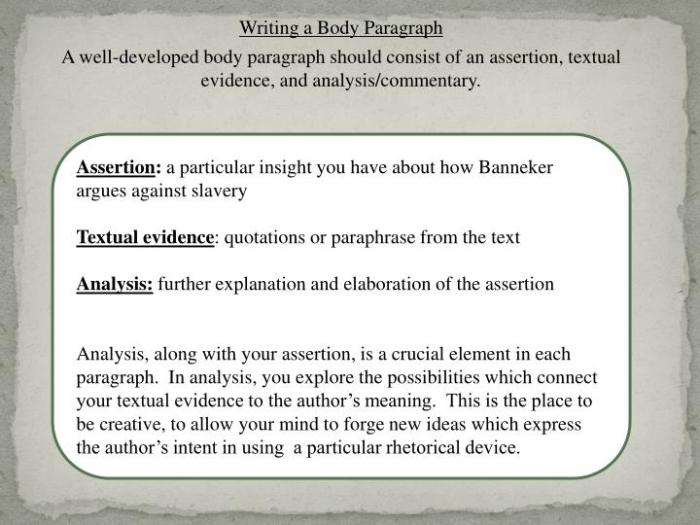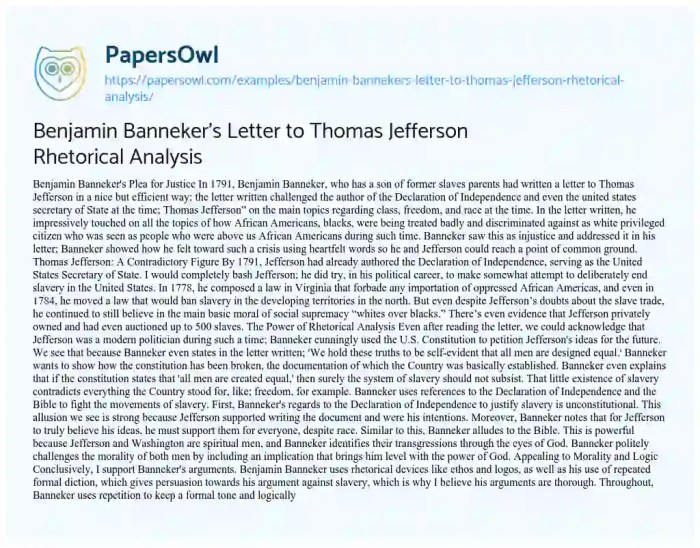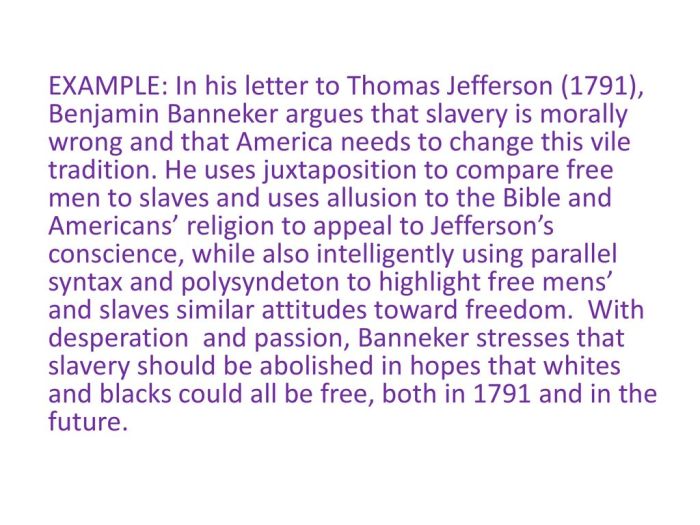Banneker letter to jefferson rhetorical analysis – Benjamin Banneker’s letter to Thomas Jefferson, penned in 1791, stands as a timeless testament to the power of reason, eloquence, and moral conviction. This rhetorical masterpiece challenges the deeply entrenched racial prejudices of its time, offering a profound meditation on the universal principles of equality, justice, and human rights.
Banneker, a self-taught mathematician, astronomer, and almanac maker, crafted his letter with meticulous care, employing a range of rhetorical strategies to bolster his arguments and persuade Jefferson, then Secretary of State, to confront the glaring contradiction between the ideals of the Declaration of Independence and the reality of slavery.
Rhetorical Strategies: Banneker Letter To Jefferson Rhetorical Analysis

Banneker employs a range of rhetorical strategies to support his claims and persuade Jefferson.
Logical Arguments
Banneker presents a series of logical arguments to support his position. He begins by establishing the equality of all men, regardless of race or condition. He then argues that slavery is a violation of this principle, and that it is therefore both unjust and immoral.
Emotional Appeals
Banneker also uses emotional appeals to persuade Jefferson. He describes the horrors of slavery, and he appeals to Jefferson’s sense of compassion and justice. He also uses flattery, praising Jefferson’s intelligence and his commitment to the ideals of the American Revolution.
Rhetorical Questions, Banneker letter to jefferson rhetorical analysis
Banneker also uses rhetorical questions to challenge Jefferson’s views. He asks Jefferson if he believes that all men are created equal, and if he believes that slavery is consistent with the principles of the American Revolution. These questions force Jefferson to confront the contradictions in his own beliefs.
Clarifying Questions
What was the main purpose of Banneker’s letter to Jefferson?
Banneker’s letter aimed to challenge Jefferson’s views on slavery and to advocate for the equality of all human beings, regardless of race.
How did Banneker support his arguments in the letter?
Banneker employed logical arguments, emotional appeals, and rhetorical questions to bolster his claims, drawing upon evidence from science, history, and the principles of natural law.
What was the significance of Banneker’s letter in the broader historical context?
Banneker’s letter served as a powerful indictment of slavery and contributed to the growing abolitionist movement, influencing subsequent debates about race and equality in the United States.


